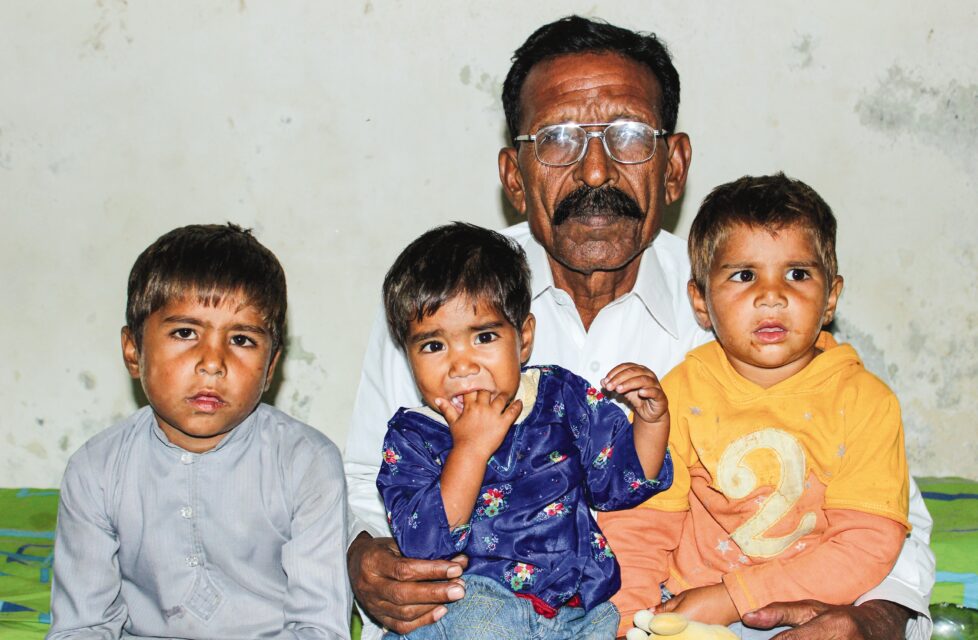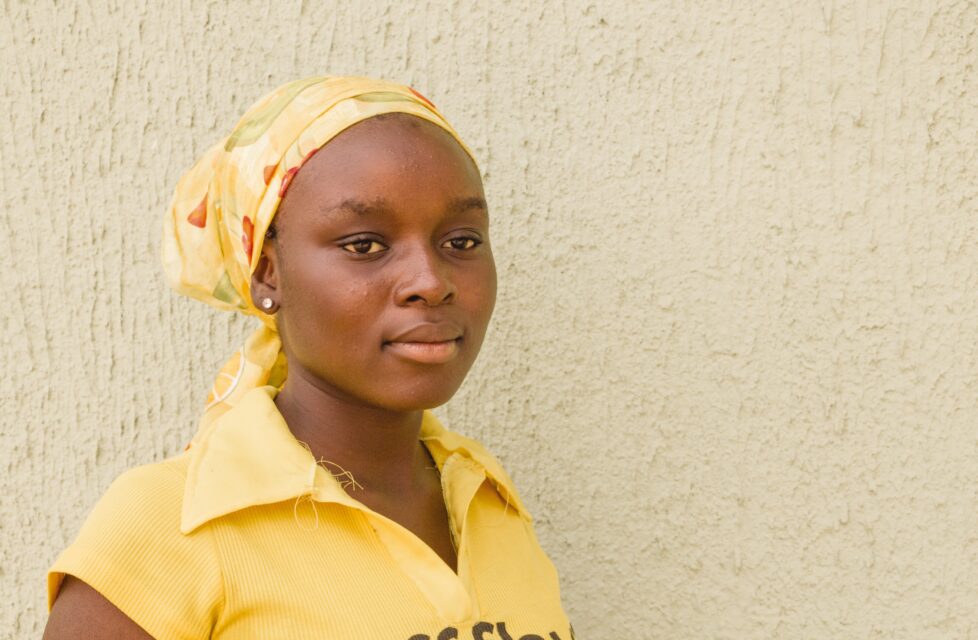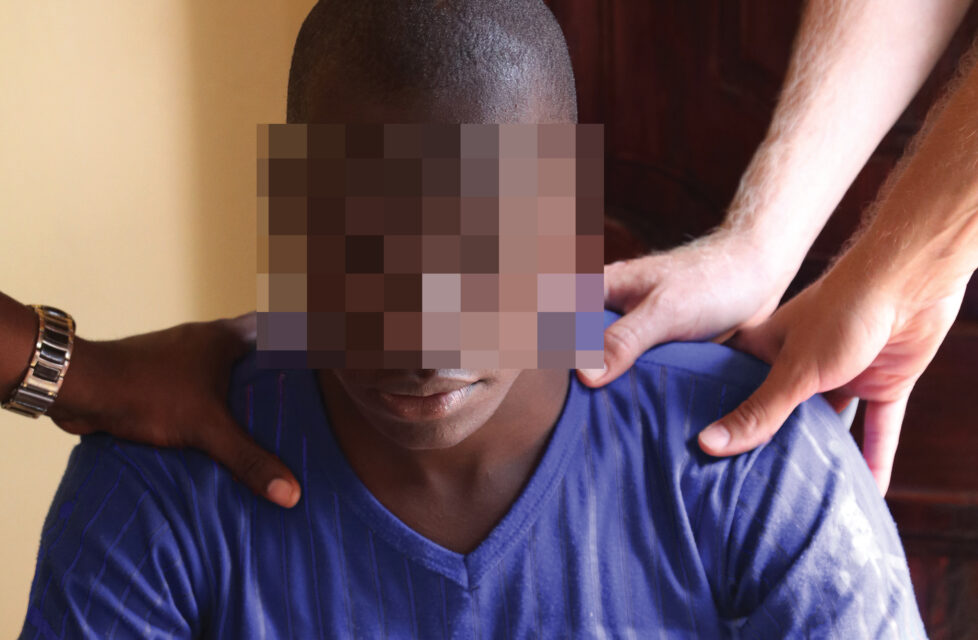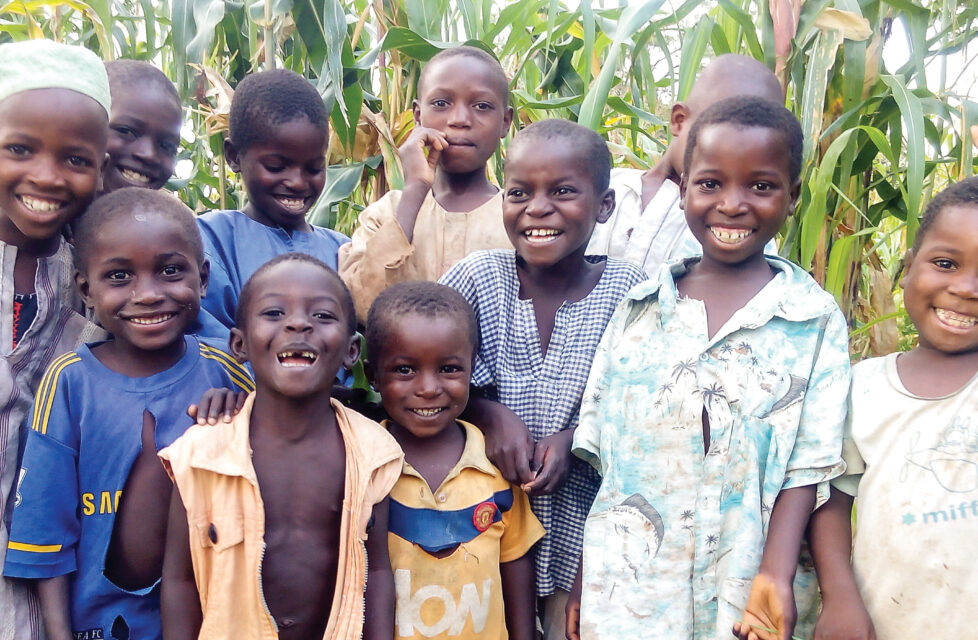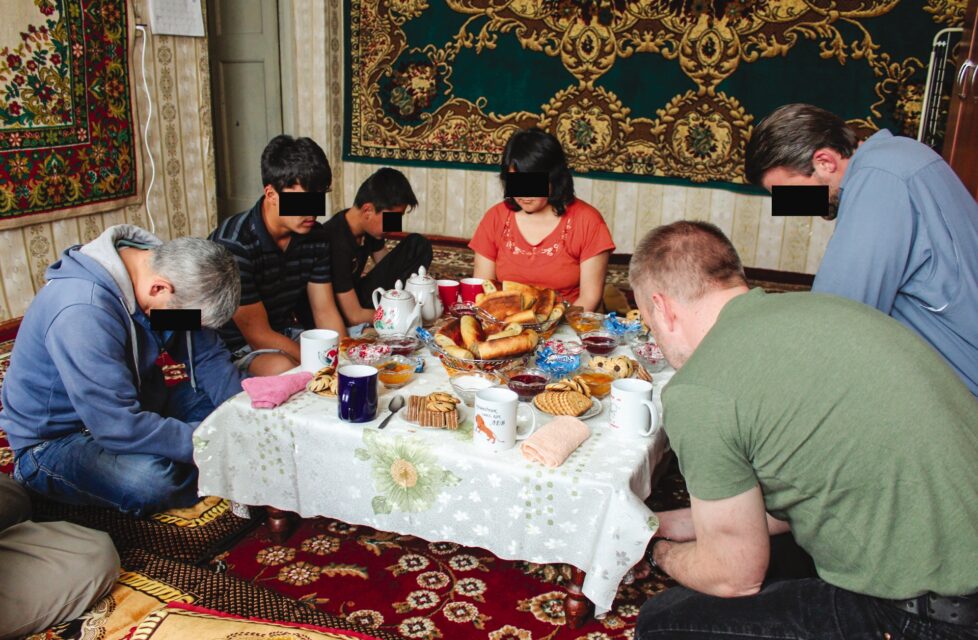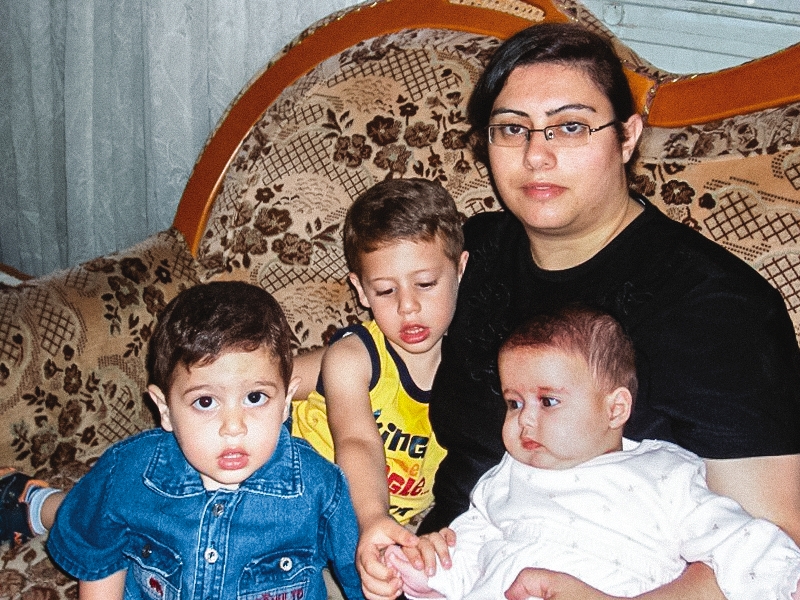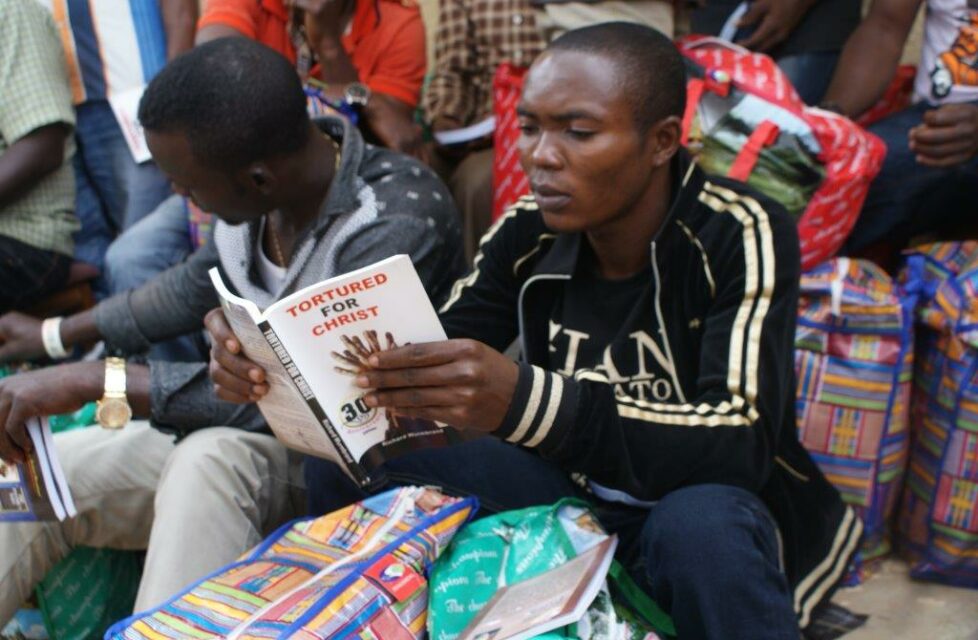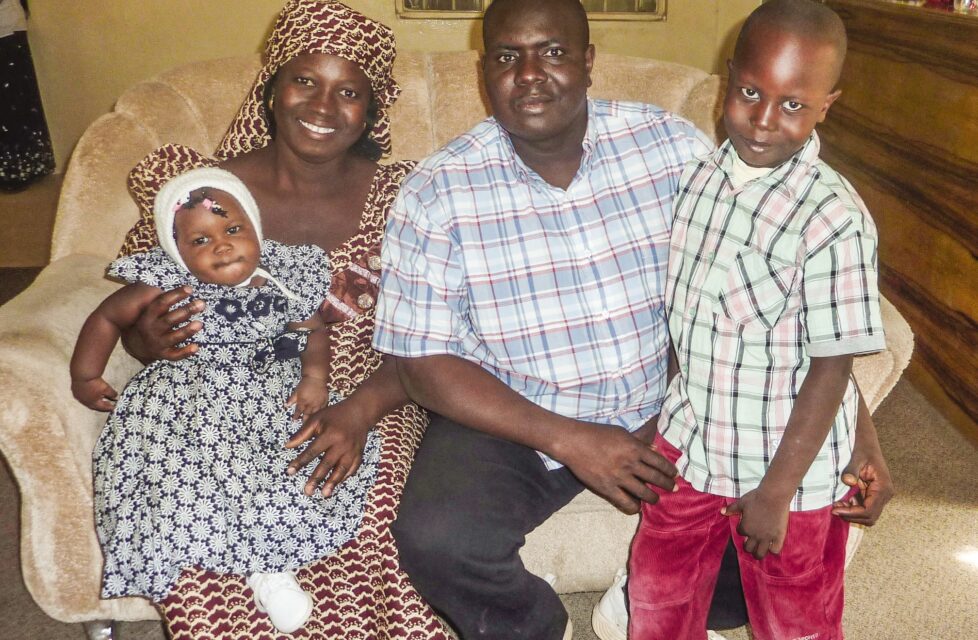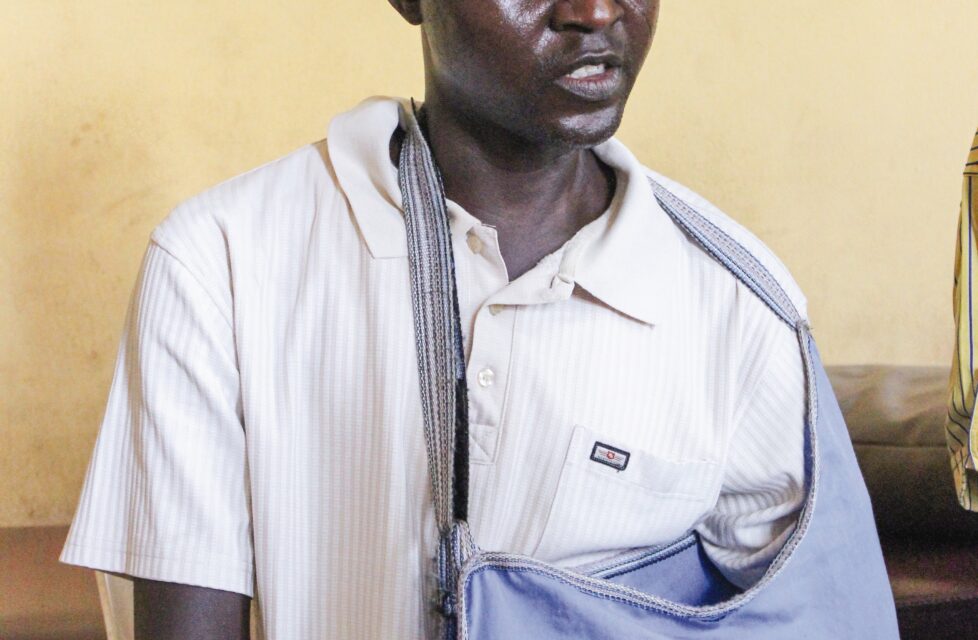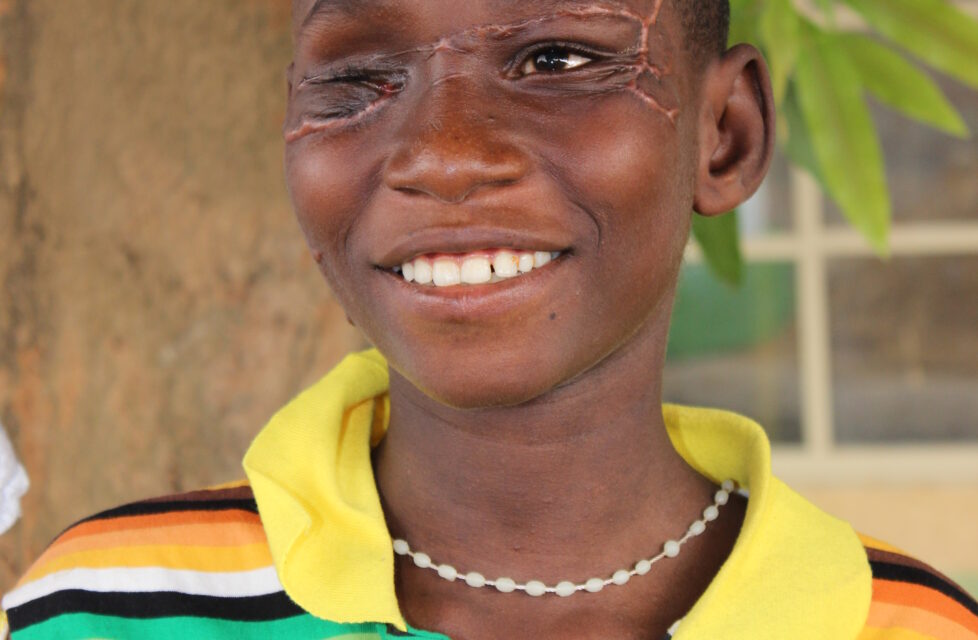The terrified couple clung to each other inside their one-room home while the mob of angry Muslims outside shouted insults and threats: “They have burned the Holy Quran! We will teach them a lesson!” Shama cried as her husband, Shahzad, tightened his arms around her and began to pray. At 6 a.m., more than 500 Muslims had gathered outside the young couple’s home near the brick kiln where they worked as bonded laborers. Shama’s husband couldn’t believe the events of the last few months had come to this. Indentured Workers in Pakistani brick kilns Shahzad, his father and four brothers moved to the brick kiln near Kot Radha Kishan, Pakistan, in 2000, when Shahzad was 16. As poor Christians (Pakistan’s lowest social class), they had few employment options. While the work in a brick kiln was grueling, it at least provided them food and a place to sleep. However, as often occurs with poor Christians in Pakistan, the family soon became indebted to the brick kiln owner. The debts are eventually passed on to the children, indenturing many families for life. Although Shahzad’s family was Christian, his father, Nazar, became friends with Muslims living near the kiln. He often read
Read MoreSept. 11, 2014, began as a happy day for Mary Patrick. She and her older sister were walking to a wedding in a nearby village with the bride-to-be and the bride’s younger sister. But their lives, like those of many other young women in Nigeria, changed forever with the terrifying sound of yelling and gunfire. Mary, who was 24 years old, quickly hid in a nearby house with the others when the Boko Haram attack began in Adamawa state, in northeastern Nigeria. They hid in the house for four days before being captured while trying to escape. “The only thing I was thinking when they took me is that I will die,” Mary said. “I know they will kill me. I’m just praying to God everything that I do that is wrong, that the good Lord will forgive me.” The horror that Mary faced during four months of captivity with Boko Haram became clear to a front-line worker when he tried to buy her a meal. “I wanted to buy food for her and bought some meat,” the worker said. “She told me she couldn’t eat the meat. She said, ‘In the camp they used to eat human flesh, so
Read More“If you come to Islam, you will become super rich.” Andrew and a group of young men from nearby villages listened intently to the sheikh’s words. “You will also be worshiping the real god,” he told them. Although Andrew had been raised as a Christian in his Tanzanian village, he was not well grounded in the faith. So he didn’t need to think long about the sheikh’s promises before deciding to follow Islam. Andrew was so drawn to the teachings and promises of Islam that even the two-hour walk to the mosque failed to deter him. He was also very attracted by the radical words of the charismatic sheikh. “He told us how he killed people,” Andrew said, “and if we are going to stand up for Islam, we need to be ready to give our lives and kill the enemy.” The sheikh, who was preparing Andrew and the other young men for service with the Somalian Islamist group al-Shabab, also taught them how to use machetes and guns. Waging jihad, or “holy war,” against those perceived to be enemies of Islam, al-Shabab makes no secret of its goal to eradicate Christianity from Somalia. And it has been exporting its
Read MoreDespite being threatened with death and disowned by family members, Dawo was determined to share the gospel with the Fulani people. And his determination hasn’t wavered since losing his brother. The day after Dawo’s cousin burned Dawo’s Bible and kicked him out of the house, 20 young men surrounded the new believer, wrestled him to the ground and tied his hands and feet together with rope. When he had placed his faith in Christ three days earlier, he couldn’t have imagined that what he was about to endure would change so much for so many. As a member of the Fulani people group, it was assumed that Dawo was and would remain Muslim. He had moved in with his cousin in a large city in Bauchi state, Nigeria, intending to enroll in an Islamic school. However, his path was radically altered by a series of vivid dreams in which he saw heaven and encountered Jesus. Prompted by the dreams, he used the little money he had to purchase a Bible and learn more about Christianity. What he learned led him to abandon his traditional Fulani religion to follow Christ. Moved by the realization that he had received salvation, he declared
Read MoreLaila’s husband was away, and she was left to care for their two children alone. It was a cold winter in Central Asia, and her landlords had just kicked her out. “If you don’t leave, we’ll burn the house — and burn you too, if you stay,” they had told her. Laila and her family had been rejected for sharing Christ in the village, so they decided to shake off the dust, pack up and leave. The family had endured many difficulties and would continue to do so, but they felt it was worth it. It all began when Laila picked up a piece of trash from the floor. FINDING GOD THROUGH TRASH Laila sat in a hospital waiting room while her husband prepared to undergo surgery for bleeding ulcers. He was not expected to survive, and she felt absolutely hopeless. Noticing some discarded trash under a bench, she picked up the crumpled piece of paper, smoothed it out and saw that it was a Christian newsletter sharing the testimonies of other Christians. “I wanted to find other stories like this, so I asked my sister-in-law,” she said. It turned out that her sister-in- law had also become interested in
Read MoreMelissa was just four years old when she lost her mother. On July 1, 2012, she went to church with her mother in Garissa, Kenya, as usual. Melissa went to Sunday school while her mother, Sandra, joined in worship with other members of the Africa Inland Church. But the service ended abruptly when gunmen burst into the sanctuary and opened fire on worshipers. Melissa huddled with the other children in Sunday school as worshipers ran from the building. Later, after other parents had collected their children, Sandra’s best friend picked up Melissa and told her that her mother was in the hospital. The next day she was told that her mother had died. The attack, carried out by members of the militant Muslim group al-Shabab, had killed 14 believers and injured 58. Twelve children were orphaned that day, and The Voice of the Martyrs has helped support them since the attack. Melissa is being cared for by her elderly grandparents. Like many in the area, they are subsistence farmers in a drought-prone region where crops are undependable. The support from VOM will help ensure that Melissa is able to attend school and that she and her family will always be
Read MoreMany of the attack victims being cared for at a Christian-run rehabilitation hospital in Gboko, Benue state, Nigeria, cannot hide their wounds. Casts and crutches clearly identify which limbs have been hacked at — or cut off — by a Muslim extremist’s machete. But the wounds that 25-year-old Solomon Samaila received in a December 2013 attack on his village in Taraba state, Nigeria, are less apparent. He has to show you. After quietly and patiently sharing his story of the attack, he takes off his T-shirt and turns toward the wall. The scars and blistering on his back show that he has suffered severe burns. The burns are the price Solomon paid for refusing to deny Jesus as Lord. It’s a price he humbly accepts. “Christ, Himself, suffered,” he said. “The salvation that I have in Christ was not free, but paid with a price to save me. So I equally feel I am prepared to suffer in persecution for the salvation I have in Christ. I won’t turn back.” Attacked by Neighbors The attack on Solomon’s village wasn’t carried out by Boko Haram insurgents from the north or by Muslim Fulani herdsmen, who also attack Christian villages. It was
Read MoreHabila Adamu and his family were awakened by the sound of someone pounding on the front door of their simple home in northern Nigeria. It was 11 p.m., well past the hour for a neighborly visit, so the only reason for someone to be at the door was an emergency or, worse, an attack on their village. The pounding on the door was followed by the sound of men yelling for Habila to come out with his family. Habila rushed to get dressed. When he entered the front room with his wife, Vivian, and their young son close behind, he faced intruders wearing robes and masks. One was armed with an AK-47. Habila said a short prayer to the Lord. After announcing that they were there to do the work of Allah, the men began to question Habila. They asked him his name, his profession, whether he was a policeman or in the military, and whether he was a Christian or Muslim. “I am a Christian,” he replied. Vivian was terrified, knowing the men were members of Boko Haram. The intruders told Habila that they were giving him the opportunity to live — and live a better life — if
Read MoreAs Micah and Dorcas Magaji walked through their Nigerian village the morning of Dec. 18, 2014, they were confronted with a choice. A group of Muslim men surrounded them, demanding that they deny Christ. Micah and Dorcas could deny Christ and live, or remain faithful and face possible death. “We were born into a Christian family,” Micah told them. “We are still Christians today. There is no way we are going to turn around from our past.” The men then threatened to cut off Micah’s arm and kill him if he didn’t renounce his faith. “Only God can take life,” he responded. “It is from God, so you cannot take my life.” The Muslims then tried to intimidate Dorcas, but she also remained faithful. “I’m married to a Christian,” she said. “There’s no way I would go back. Wherever my husband goes, that is where I’ll go. I’m not changing from this faith to any other.” Dorcas’s response infuriated the men. They shot her to death and then hacked at both of Micah’s forearms with a machete before leaving him for dead. “The story of the attack got to Christian elders, so they sent people to rescue me,” 35-year-old Micah
Read MoreDanjuma Shakaru’s grave is still empty. Villagers had dug the 13-year-old boy’s final resting place after he was critically wounded during a Jan. 28, 2015 attack on their village. When they saw his mangled, lifeless body covered in blood, they fully expected him to die. But God had other plans. Three months after the attack, Danjuma’s face is marked by horrendous scars where his right eye was carved out … and by a beaming smile. Danjuma’s memories of the attack begin with the gunshots he heard at about 6 a.m. on a Wednesday morning. He remembers running for his life and then being confronted by some of the more than 1,000 Islamic insurgents who attacked his Christian village, burning homes and killing villagers who didn’t manage to escape. Although his memories of the attack are incomplete, one thing he’ll never forget is the pain caused by a machete slicing through the left side of his head. The rest of the attack, by God’s grace, he doesn’t recall. “Then I found myself in this situation,” he said. “I can’t remember how the story continues again.” Terrifying Brutality Danjuma can’t recall the attackers hacking at his left arm with a machete. He
Read More
